- Ateneo
- Jean Monnet Module
- Teaching staff
- a.y. 2016/17
a.y. 2016/17
|
Educating to intercultural sensitivity Associate professor in Sociology of cultural and communicative processes, director of CIRMiB (Centre of Initiatives and research on Migration, Brescia) at the Università Cattolica del Sacro Cuore (UCSC). She teaches Sociology of education; Sociology of educational policy; Sociology of Inequalities and Differences. Her main areas of interest are education, training and socialization processes and supply, education systems, impacts of migration in schooling, social changes in teachers' role; cultural innovation and interculturalism. She co-ordinates the Laboratory of researches and social intervention at the Università Cattolica of Brescia. Member of the managing board of other research structures and Post graduation Courses at the UCSC; since 2011 member of Scientific Board by ESA /European sociological association, RN 10 – Research network “Sociology of education”; co-director of the Book serie "IES - INNOVATION, EDUCATION AND SOCIETY" by the Publisher FrancoAngeli, Milano. |
|
Challenges for inclusion Associated Professor of Education in the Faculty of Educational Sciences at the UCSC of Milan. Author of several monographs, articles and essays published in reviews and miscellaneous works. Since 2000 she is teaching in university courses: Social Education and Intercultural Education, Pedagogy of Person, Education and Communication, Childhood education. Since 2000 she is member of the Ph.D. Board in Education of the Faculty of Educational Sciences at UCSC. Since 2012 she is member of the Scientific Review “LA FAMIGLIA” and since 2005 Member of Scientific Committee – Research Center on Family Education (UCSC, Brescia). She is member of the referee board of various series and scientific magazines. Member of SIPED (Italian Society for Education). Research fields: Early Childhood Education, Participatory Processes, Family, School, Intercultural education, Social Education. |
|
Social psychologist specialised in the field of cross-cultural psychology. She has thought social psychology, statistics, research methods and professional skills at universities in the UK and in France for over 12 years. She also has experience as an advisor of both undergraduate and graduate students’ research projects. These teaching and advisory activities have taken place in both English and French (although Swedish is Dr Becker’s native language), and have used different didactic approaches. In terms of research skills, she has experience of both leading and participating in large-scale international research projects into cross-cultural psychology. |
|
Léonce Bekemans (BA in Philosophy, MA in International Studies and PhD in International Economics) has an international profile and interdisciplinary academic background with a broad and long-lasting research and multi-lingual teaching/research experience in European studies and an international publication record. He has been for 10 years professor at the College of Europe and worked for various European institutes with combined teaching, research and management responsibilities. His main research interests relate to the broad area of value-oriented integration studies with a focus on the relations between economy, polity, culture and society from a global, European and local perspective and their wider societal impact. He is a Jean Monnet Chair ad personam at the University of Padua and academic coordinator of its Jean Monnet Centre of Excellence, a formally acknowledged success story of the EU Jean Monnet programme and collaborator of its Human Rights Centre. He is visiting professor at various European universities, an appreciated speaker at international conferences and an expert to the UN, Council of Europe, the EU, Committee of the Regions, Anna Lindh Foundation in relation to European education, intercultural dialogue and multi-level governance issues. He is the SG of ECSA-World and also the president of “Ryckevelde”, a not-for-profit organisation dealing with European citizenship in Bruges (B). |
|
Floriana Conte is employed as administrative staff at UCSC Global Engagement and International Education and she is currently in charge of the administrative and financial management of programs Erasmus+ cooperation actions (Capacity Building projects, Strategic partnership projects, Erasmus Mundus), Jean Monnet, Europe for Citizens and Edulink II. |
|
Recognizing and preventing neo-racism in Europe Trainer and pedagogical consultant, collaborates with the Research Center on Intercultural Relationships of the UCSC. For many years he collaborated with the Master of Intercultural Competences at the same University. In the field of intercultural pedagogy and cultural mediation he has held numerous lectures for socio-educational workers, educators and professionals, after a long experience as a professional educator. Since 2006 he leads pedagogical supervision and accompanying teams of educators in territorial education services in Milan. He has also carried out numerous research and training activities for the Lombardy Region, UCSC, the ISMU Foundation, the Cariplo Foundation, the Regional School Office of Lombardy and the City of Milan. Since 2003, he has been leading numerous education projects for active citizenship and community development by focusing on the educational and social aspects of projects for the ABCittà Cooperative, of which he is Vice President. He has published several publications and articles in pedagogical journals. |
|
Dr. Nicola Montagna joined the Department of Criminology and Sociology and the Crime and Conflict Research Centre at Middlesex University in September 2008. He holds a PhD in Sociology at Middlesex University and a MSc in Sociology from London School of Economics, as well as a BA in Philosophy from Milan University, Italy. He is a member of the British Sociological Association. His current research focuses on global social movements and collective violence, occupied social centres and youth movements, urban movements, international migration, migrant protests, Italian politics, political and sociological thought. He has widely published in peer reviewed journals and edited books in several languages. He is co-editor with Vincenzo Ruggiero of Social Movements: a reader, Routledge, 2008, and with Sue Mew of "Conflicts within the crisis", Social Justice, 39 (1), 2013. |
|
The intercultural dialogue and the European political agenda Lecturer in the Department of Sociology and Social Anthropology of the University of Valencia. Member of its Human Rights Institute, of the Interdisciplinary Study Group on Migration, Interculturalism and Citizenship Studies (University of Castilla-la-Mancha) and of the Welfare, Community and Social Control inter-university group (University of Barcelona). He holds a B.A. and a PhD in sociology and a diploma in social work. He has coordinated Doctors of the World's public health centre for immigrants in Valencia, led CeiMigra's school of intercultural citizenship and worked as an immigration officer in the municipal administration of Benicarló (Castellón, Spain). He collaborates in courses offered by a range of public institutions, universities, foundations and NGOs and has given talks and published articles on issues of immigration, social exclusion, multiculturalism, citizenship, integration and public policies. |
|
“Ce que nous préparons, à travers l’action de la Communauté, n’a probablement pas de précédent. Cette communauté est fondée elle-même sur des institutions qu’il faut renforcer, tout en sachant que la véritable autorité politique dont se doteront un jour les démocraties européennes reste à concevoir et à réaliser. Et la Communauté elle-même n’est qu’une étape vers les formes d’organisation du monde de demain” Jean Monnet, 1976. Graduated in Philosophy at La Sapienza in 1994, after (1997) he obtained a Master Degree in European Integration Studies at the College of Europe in Bruges and a Master Degree in Interactive Multimedia Project and Cyber-communication at the ISC Saint-Louis in Brussels (2002). Luciano defended his PhD, which he obtained from the VUB, in 2004. Since then he has been working as researcher and professors at the Vesalius College and the VUB, and as visiting professors at La Sapienza, Rome and at the University of Wisconsin, Milwaukee. He regularly teaches for the Executive Office of the College of Europe of Bruges. Luciano has been working in many European co-funded projects and as an expert for the European Commission and the Committee of the Regions. He has been teaching and coordinating various Jean Monnet modules and a Jean Monnet Conference. He teaches courses related to the European Union Public Sphere and Information and Communication Policies, the History and Theories of European Union integration, European Union Policies related to Media and New Media. He published articles and edited books and journals about the European Public Sphere and European Cultures, European Media and Internet policies. |
|
Luigi Pati is Full professor of Education in the Faculty of Educational Sciences, UCSC, Milan. Since 2014 he is Dean of the Faculty of Educational sciences at UCSC. Since 1995 he is member of the Ph.D. Board in Education of the same Faculty. Since 1996 he is Head of the research center on “Family life” at UCSC. He has been organizing and taken part to various national and international seminaries and conferences. Author of about 300 articles and essays published in reviews and miscellaneous works. Since 2002 he is Head of the Scientific Review “LA FAMIGLIA”. He is member of the referee and scientific board of various series and scientific magazines. Research fields: Education, Family; School; Intercultural education; Social Education. |
|
Barbara Pizzetti has a degree in Foreign Languages and Literatures. She attended a post graduate school for Social Theatre operator and worked as “teaching assistant” at Università Cattolica del Sacro Cuore. She is an actress, theatre trainer, and social theatre trainer and collaborates with many institutions, associations and schools in the areas of detention, childhood education, teachers training, disability, intercultural education. She has a broad experience in the field of cultural events and festivals organization, planning and management. |
|
This part of course aims to raise awareness that striving to preserve a culture has a different weight and importance of coexisting ethnic and religious communities in modern Europe, characterized by cultural and religious diversity. It is important to recognize that members of the coexisting communities insist to save usual habits and religious practice (even irreligion), which is the central element of their identity. Since they function as a basic compass determine the way how to respond to each others’ behaviour, even when apparently they live separately. Overall, the main component of a responsible European Citizenship concept is that cultural traditions should be interpreted as social fact, and the people of different traditions should mutually respect each other and should not viewed each other through the prism of the economic subsystem, as impersonal workforce or customers. Since 2014 she is Head of Doctoral School on Human Sciences (Education, Sociology, Psychology and Philosophy); since 2012 Professor of Educational Sociology at Institute of Educational Studies and since 2012 Head of Doctoral Program on Educational Sciences at the University of Debrecen. Main research and teaching fields: Sociology of Education; Comparison of education systems; Research methods in educational studies; Information of the Sociology of Education; Interpretational methods of the Sociology of Education; Education and society; Education and politics; Classical theories in educational sociology; Hermeneutics of schools; Cultures in schools; Improvement in education; Social basis of education and public education. |
|
Monica Spatti, Ph.D. in International, Supranational and European Institutions at the University of Teramo, is now researcher in International Law at the Faculty of Political and Social Science, UCSC, Milan. She is member of the academic board of the Doctoral Programme in Institutions and Policies at the same University, where she is charged of the course on European Information Law (since 2013), and International Law (since 2016). Her main research subjects concern the international and European system of protection of human rights, in particular regarding migration, privacy, freedom of expression and food safety. |
|
Since 2001 she is Professor of Modern History at UCSC and since 2004 Social History professor at UCSC. She has been Professor of World History at the Kent State University in Florence. Her main research fields are: History of political institutions in Early Modern History; Aristocracy and aristocratic culture XV-XIX century; Holy Roman Empire XV-XIX century; French Revolution; European citizenship. |
|
The link between current migration, immigrant integration and migrant transnationalism lies at the core of my lecture. The present circular, often repetitive flows of labour and return migration in Europe can generate specific social challenges that exceed the capacities of traditional integration programmes developed for unidirectional migration. Consistent outflows of asylum seekers moving from neighbouring countries to the European migration space adds further challenges in view of the specific needs of these vulnerable persons which include a significant number of women and children. Intercultural competences and the ability to deal with diversity are then increasingly important aspects in migrant-receiving, transit and return locations. Senior researcher at the Faculty of Communication Sciences of the University of Lugano (USI), Switzerland (since February 2008) and Honorary Research Fellow at the Department of Social Sciences, University of Roehampton, London, United Kingdom (since January 2016). Paolo Ruspini has been researching issues of international migration, migration and European integration since 1997 with a comparative approach and by drawing on policy and qualitative analyses. The geographical focus of his research spans from Western to Central and South-Eastern Europe and cover also the Post-Soviet migration space with emphasis on the dynamics and multimodal character of migration flows in a changing policy context. Contribution to migration research include, among the other, issues of irregular migration, human trafficking, migration control, multiculturalism, immigrant integration as well as explorations of the European migration space, the convergence processes of the EU migration policy and transnationalism in East-West perspective. He has been working in many collaborative projects at national and European level and he is active in research networks on international migration like the IMISCOE as well as being from time to time consultant for national and international organisations. |
|
He is Professor of Political Sociology at the University of Trento since 2012 (School of International Studies & Sociology Dept.); he has been Professor of Political Sociology and Head of Department at the University of Leicester; Willy Brandt Professor - Malmö Institute for Studies of Migration, Diversity and Welfare; Associate Professor of Sociology at the Trento University and Fellow in Sociology at the Essex University; Lecturer in Sociology at the Essex University; Lecturer in Sociology at the University of Surrey; Jean Monnet Fellow at the European University of Florence; MacArthur Fellow in International Security at the Harvard University 1987-1989. |
|
Lecturer in Sociology of Education and Sociology of Education Policies at the Faculty of Education (UCSC). She is Head of the Education Department of the ISMU Foundation (Foundation for the Study of Multiethnicity) and has been editor of the annual “Report on students with non-Italian citizenship” since 2010, promoted by the Ministry of Education and ISMU. Her main scientific interests are focused on the relationship between education and migration (ethnic inequalities, interethnic relationships, intercultural policies) and on socialization of disadvantaged young people (i.e. Early School Leavers, young NEETs, etc.). Her recent publications include: Interculturalism, education and society: Education policies for immigrant students in Italy, in “Australia and New Zealand Journal of European Studies”, 8(2), 2016, pp. 6-20; A different yet equal opportunity. Innovative practices and intercultural education in Initial VET, Milan, ISMU, 2016; Researching integration in multiethnic Italian schools: A sociological review on educational inequalities, in “Italian Journal of Sociology of Education”, 7(3),2015, pp. 294-334. |
|
Full Professor of Pedagogy in the Faculty of Education at UCSC and Director of the Center for Research on Intercultural Relations. She is currently deputy of the Italian Parliament, member of Commission VII - Culture and Education and Chairman of the Parliamentarian Alliance against intolerance and racism of the Council of Europe. She carries out research projects on social issues and intercultural integration of immigrants at school and in educational services: education for citizenship; strategies against racism; teaching of the Holocaust; moral education and neuroscience. She was national scientific coordinator of two of Relevant Research Programs of National Interest (PRIN) 2006 and 2008. She deals with the training of educators in the field of welfare and disadvantaged young people for public administrations, businesses and NGOs. She operates in contrast to the phenomena of discrimination (anti-Semitism, racism, Islamophobia, antigitanism). She is a member of the Contemporary Jewish Documentation Center and Fidr (International Forum Democracy and religions) to promote integration of religious minorities in Italy. |
|
Knowing the educational culture that people have is basic in the acknowledgement of Otherness. In particular, knowing his/her family and its “maternage” culture. The co-responsibility between family and school can promote this knowledge and the valorization of the family educational culture. PhD in Education, she’s carrying out a post-doc research at the UCSC in Milan. Her main areas of interest are social and family education. In particular, her researches are about work organizations, families and schools. She has training experiences in different contexts. In 2016 she won the SIPED (Italian Society of Pedagogy and Education) National reward for the book Crescita umana e benessere organizzativo (Human development and organizational well-being), Vita e Pensiero, Milano 2012. |

.jpg) Maddalena COLOMBO, Università Cattolica del Sacro Cuore - Coordinator of IDEAL Module
Maddalena COLOMBO, Università Cattolica del Sacro Cuore - Coordinator of IDEAL Module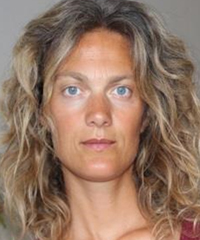 Monica AMADINI, Università Cattolica del Sacro Cuore - IDEAL lecturer
Monica AMADINI, Università Cattolica del Sacro Cuore - IDEAL lecturer Maja BECKER, Université Jean Jaurès de Toulouse - IDEAL lecturer
Maja BECKER, Université Jean Jaurès de Toulouse - IDEAL lecturer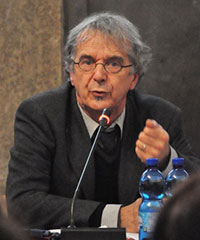 Léonce BEKEMANS, JM Chair Università di Padova - IDEAL lecturer
Léonce BEKEMANS, JM Chair Università di Padova - IDEAL lecturer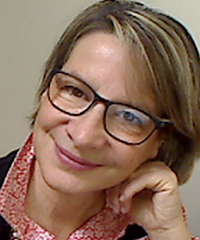 Floriana CONTE, Università Cattolica del Sacro Cuore - International Office UCSC
Floriana CONTE, Università Cattolica del Sacro Cuore - International Office UCSC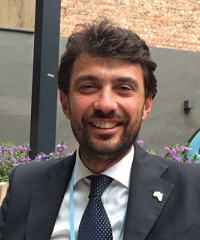 Ulderico MAGGI, Università Cattolica del Sacro Cuore - IDEAL lecturer
Ulderico MAGGI, Università Cattolica del Sacro Cuore - IDEAL lecturer Nicola MONTAGNA, University of Middlesex - IDEAL lecturer
Nicola MONTAGNA, University of Middlesex - IDEAL lecturer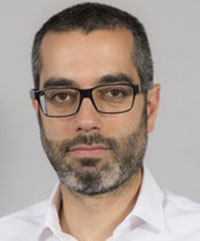 Albert MORA CASTRO, Universidad de Valencia - IDEAL lecturer
Albert MORA CASTRO, Universidad de Valencia - IDEAL lecturer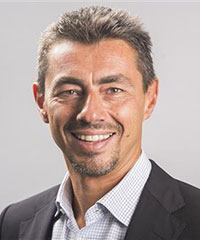 Luciano MORGANTI, Free University of Brussels - IDEAL lecturer
Luciano MORGANTI, Free University of Brussels - IDEAL lecturer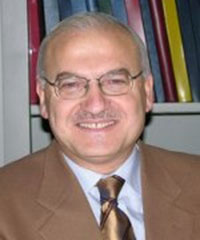 Luigi PATI, Università Cattolica del Sacro Cuore - IDEAL lecturer
Luigi PATI, Università Cattolica del Sacro Cuore - IDEAL lecturer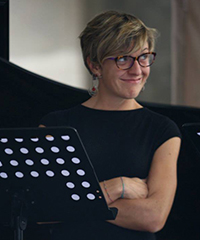 Barbara PIZZETTI, Università Cattolica del Sacro Cuore - Classroom assistant
Barbara PIZZETTI, Università Cattolica del Sacro Cuore - Classroom assistant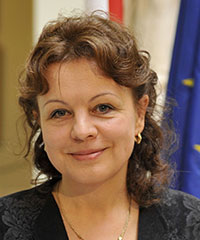 Gabriella PUSZTAI, University of Debrecen - IDEAL lecturer
Gabriella PUSZTAI, University of Debrecen - IDEAL lecturer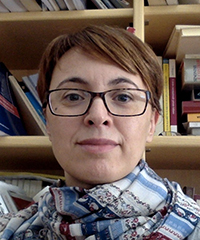 Monica SPATTI, Università Cattolica del Sacro Cuore - IDEAL lecturer
Monica SPATTI, Università Cattolica del Sacro Cuore - IDEAL lecturer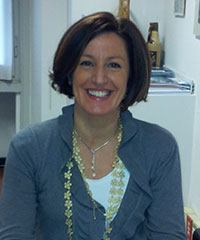 Elena RIVA, Università Cattolica del Sacro Cuore - IDEAL lecturer
Elena RIVA, Università Cattolica del Sacro Cuore - IDEAL lecturer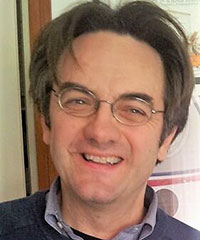 Paolo RUSPINI, Università della Svizzera Italiana USI Lugano - IDEAL lecturer
Paolo RUSPINI, Università della Svizzera Italiana USI Lugano - IDEAL lecturer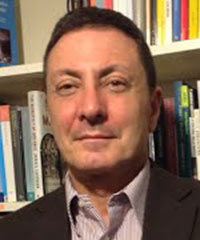 Carlo RUZZA, Università di Trento - IDEAL lecturer
Carlo RUZZA, Università di Trento - IDEAL lecturer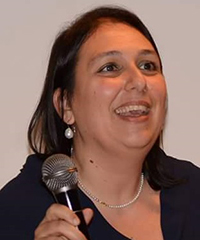 Mariagrazia SANTAGATI, Università Cattolica del Sacro Cuore - Project Communication and Web Resources
Mariagrazia SANTAGATI, Università Cattolica del Sacro Cuore - Project Communication and Web Resources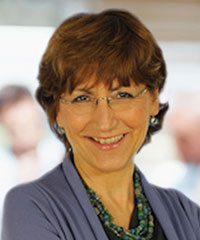 Milena SANTERINI, Università Cattolica del Sacro Cuore - IDEAL lecturer
Milena SANTERINI, Università Cattolica del Sacro Cuore - IDEAL lecturer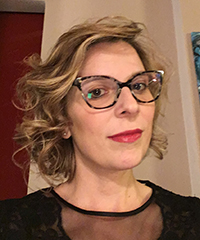 Paola Zini, Università Cattolica del Sacro Cuore - IDEAL lecturer
Paola Zini, Università Cattolica del Sacro Cuore - IDEAL lecturer